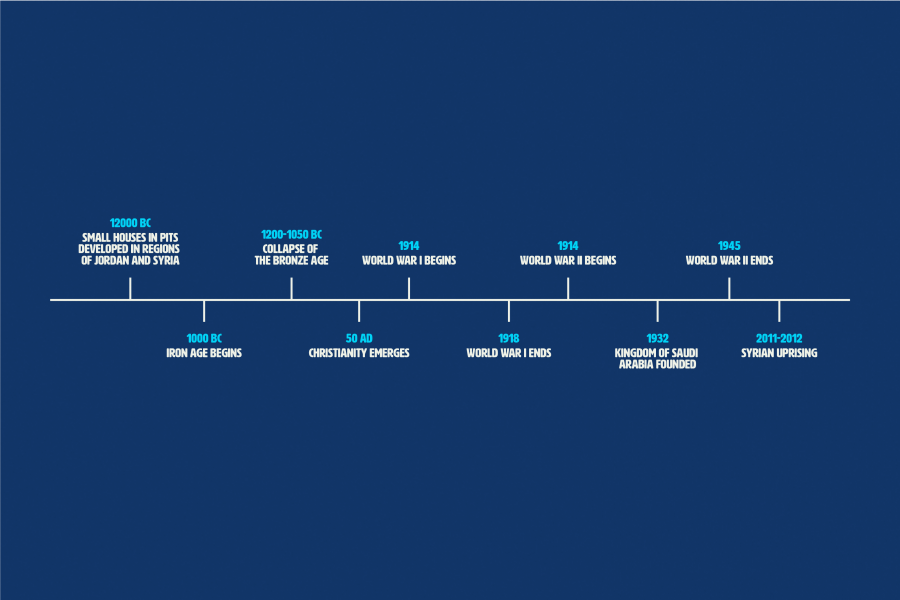
It may benefit Muslims to put to rest a 7th-century division
 I would never argue that people should not know their own history, nor that of others. I would argue, however, that too much remembrance can be problematic in certain cases, especially if those historical moments occurred in the 7th century.
I would never argue that people should not know their own history, nor that of others. I would argue, however, that too much remembrance can be problematic in certain cases, especially if those historical moments occurred in the 7th century.
As a Muslim, I know the story of the Shia-Sunni split well. The division can be traced to the year 632 A.D., continuing all the way to present day. The split occurred with the debate over succession after the prophet Mohammad’s death. Sunnis wanted the community to determine who would become the next caliph while Shias argued that a member of the prophet’s family should lead. While Shias didn’t immediately receive gratification, Mohammad’s son-in-law, Ali, would later become the fourth caliph. An onslaught of violence and war brought Ali’s rule to an end after his death. The war continued with Ali’s son, Hussein, who fought against the new caliphate, resulting in the death of 72 of his companions, as well as Hussein’s decapitation — whose body was then carried as a tribute to the Sunni caliph.
While an interesting history lesson, the historical meaning behind these labels doesn’t necessarily hold any relevance in today’s world. Despite tense political differences in 632 A.D., both factions still follow the same book, worship the same God and recognize the same prophets. The unique characteristic about a division this strong is that you don’t need to understand why the split occurred originally, because it doesn’t contribute much to the present conflict. The labels mean something, but it’s not about the history or source of the divisions; they’ve become arbitrary titles used to, either knowingly or unknowingly, ensure division. In this case, remembering history is serving no one.
This unrelenting fixation on the Shia-Sunni division shifts focus from present issues while also giving rise to new ones. Rather than deal with the issues that directly affect citizens, such as combating poverty and unemployment, Middle Eastern nations instead allocate time and lots of money to fighting sectarian proxy wars in the region. This results in what feels like a never-ending war with a weak chance of resolution, as evidenced by the 14 centuries that have passed since the split. The Shia and Sunni labels have not only withstood the test of time but have also remained a source of contention. Even if problems like poverty were not ignored in favor of conflict, the presence of these labels indicate that many Muslims have failed to recognize the absurdity of a centuries-old, now-irrelevant political dispute that still manages to dictate politics and religion today. This division has also given rise to problematic traditions like Ashura.
Ashura, for the majority of Shias, is a day of remembrance for the death of Hussein. Muslims are expected to, as the eighth Shia Imam Ali al-Rida once dictated, observe Ashura as a day of rest, sorrow and disregard of other issues or worldly matters. Shia Muslims participate by mourning and listening to recollections and sermons on the death of Hussein and his family. Along with this Ashura custom comes the practice of self-harm, in which Muslims whip, cut and slash themselves in commemoration. While largely performed by men, children have also taken part in such activities. A chilling image of a young girl being restrained by two men as a third prepares to slice into her forehead always comes to mind; what is the incentive to mourn and beat oneself in honor of a 7th century historical figure? Why is this taught to children to ensure continued practice?
Unquestioning compliance to traditions is not uncommon in the Middle East; restrictive laws and other governmental functions go largely unquestioned, creating a society of people willing to beat themselves without a logical justification for doing so. Perhaps mourning the past is a result of dissatisfaction with the present; Arabs once led civilization and now their region is characterized by proxy wars.
Why do Muslims continue to identify themselves with a political dispute that occurred well beyond the realm of present relevancy? The subject of the dispute now means nothing and the label now means everything — despite the fact that everything that defines the label (support, or lack thereof, for the prophet’s family to lead the caliphate) is no longer relevant nor of immediate concern to anyone, and that includes Sunnis and Shias. Converts don’t pick a title because the label is entirely separate from Islam itself. It is not mentioned in the Quran and it’s the consequence of political rivalry in the 7th century. So why continue to adhere to a label whose sole basis is division, rather than unity? Even if addressing present day issues is not a motivating goal to loosen the grip on the past, the fallacy of the titles themselves should be motivating enough to do away with them.
It’s difficult not to get lost in the nostalgia of one’s past, but how does an entire religious group continue to feel nostalgia for an event so far removed from present day? Muslims constrain themselves through this remembrance; by mourning the past, Muslims continue to live in it and lead their country and their children as such. Rather than look to the past as a means to feel sorrow over the present, Muslims should look to the present to establish a better future.
Written by: Hanadi Jordan — hajordan@ucdavis.edu
Disclaimer: The views and opinions expressed by individual columnists belong to the columnists alone and do not necessarily indicate the views and opinions held by The California Aggie.



